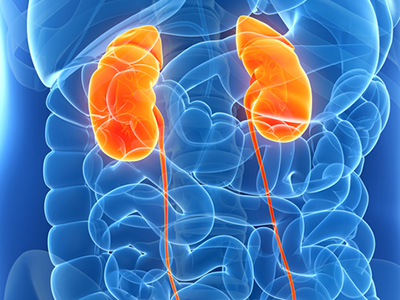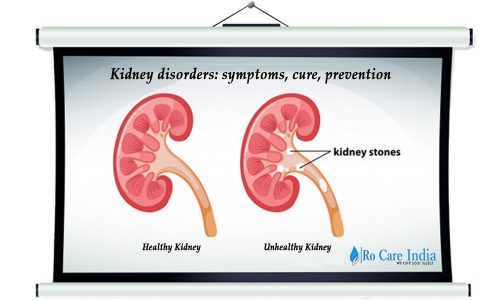Kidney disorders: symptoms, cure, prevention, and maintenance of healthy kidney
Protecting the kidney is becoming extremely vital in the 21st century with the latest trend of consumption of fast foods and ready-to-eat foods. The present generation is more inclined towards aerated drinks and erratic food practices which have ultimately put the life of the critical filtration organ at stake. The kidney is the organ that helps to filter toxins from the blood and thus purify it; hence, it is our responsibility to take good care of the organ.
Kidney failure
The kidneys are present in pairs on both sides of the spine in the human body. The kidneys filter the blood and send the toxins to the bladder, which then eliminates it through urination. Kidney failure is the condition in which the organ fails to filter the toxins, and thus the blood gradually becomes filled with impurities and toxins.
Causes Of Kidney Malfunctioning
There are several factors which can affect the functioning of this organ; some of these being:
- Extreme dehydration
- Chronic and acute kidney ailments
- Kidney trauma
- Exposure to toxic pollutants present in atmosphere or consumption of some specific medicines
The kidneys are overloaded with poisonous materials and fail to function correctly, which causes the failure of the organ; this can prove fatal if it is left untreated.
Kidney Failure Symptoms
The kidney disorders are considered silent killers which gradually disrupt the whole system of the affected person. The symptoms associated with kidney failures are very nominal, and in some cases, there exist no signs at all. Some symptoms which can help detect the failure of this organ are:
- Nausea which persists for long periods
- The decrease in the quantity of urine
- Shortness of breath which cannot be explained
- Severe fatigue or drowsiness
- Increasing pressure or pain in the chest
- Seizures
- Coma
- Swelling of feet, legs, and ankles due to fluid retention, which is caused as the kidneys lack the capability to remove water waste from the body.
Early Symptoms
Kidney diseases are complicated to diagnose as they are very rarely detected at a primary stage and often remain subtle and camouflaged. However, in some cases, there are some early signs which can help the medical practitioners identify the kidney ailment. Some of these initial signs are:
- Retention of fluid which can cause the body to swell
- Reduction in the urine output
- Disturbed breathing
Reasons behind kidney failures
Kidneys can fail to function under several circumstances, and these are also known to determine the specific type of failure. The individuals who are higher risk have more than one cause discussed below:
Reduced blood flow to the organs: There are cases in which there is a sudden decrease in the blood flow to the kidneys. Some reasons behind this condition include heart diseases or heart attacks, dehydration, liver failures, severe infections or sepsis, burns, or allergic conditions.
Difficulty in urine elimination: When the body fails to discharge urine, the toxins get accumulated in the body, and thus the kidney gets overburdened. This may arise due to specific cancer which obstructs the urine passage like cancer of the colon, bladder, cervical, and prostate.
Some other causes include infection, drugs, alcohol, uncontrolled diabetes, chemotherapy drugs, cancer, some antibiotics, excess accumulation of toxins emanating from heavier metals to name a few.
Types Of Kidney Failures
Kidney failures can be categorized under five sections; these are:
- Acute pre-renal failure
- Acute intrinsic failure
- Chronic pre-renal failure
- Chronic essential failure
- Chronic post-renal failure
Tests For Detecting Kidney Failures
Several tests are involved for detection of kidney failures; some of these are:
- Urinalysis
- Measuring the volume of urine
- Blood sample
- Imaging
- Examining tissue of the kidney
Treatment Of Kidney Failure
There are many treatments for curing kidney failures; some of these are:
Dialysis: This treatment filters the blood externally with the help of machines or the machine is performing the function of the kidneys. Based on the type of treatment, the patient is recommended his diet. This treatment does not include the organ but helps the person to sustain for a more extended period. The industrial water filtration system holds prime importance in this treatment as accurately filtrated water free from contaminants can make the treatment process more successful.
Kidney transplant: This is another option for treating kidney failure, and once this is conducted, the person does not require dialysis. But the person should be careful post-transplant since he is administered immune suppressant medicines which can sometimes be very dangerous.
Expenses Regarding Treatment Procedures
Both treatments are expensive and vary according to the treatment units. However, the medical groups which render dialysis to the patients should install ro plants for filtering water. The industrial ro plant costs around 2.5 to 3 lacs and the authorities thus charge a large amount from the persons opting for this treatment. Transplantation of the kidney is also expensive and can burden the patient family with an expense amounting to 10-15 lacs approximately.
Thus, the main aim of every individual should be to protect and care for their kidneys which are one of the vital organs without which the person can no longer survive.





